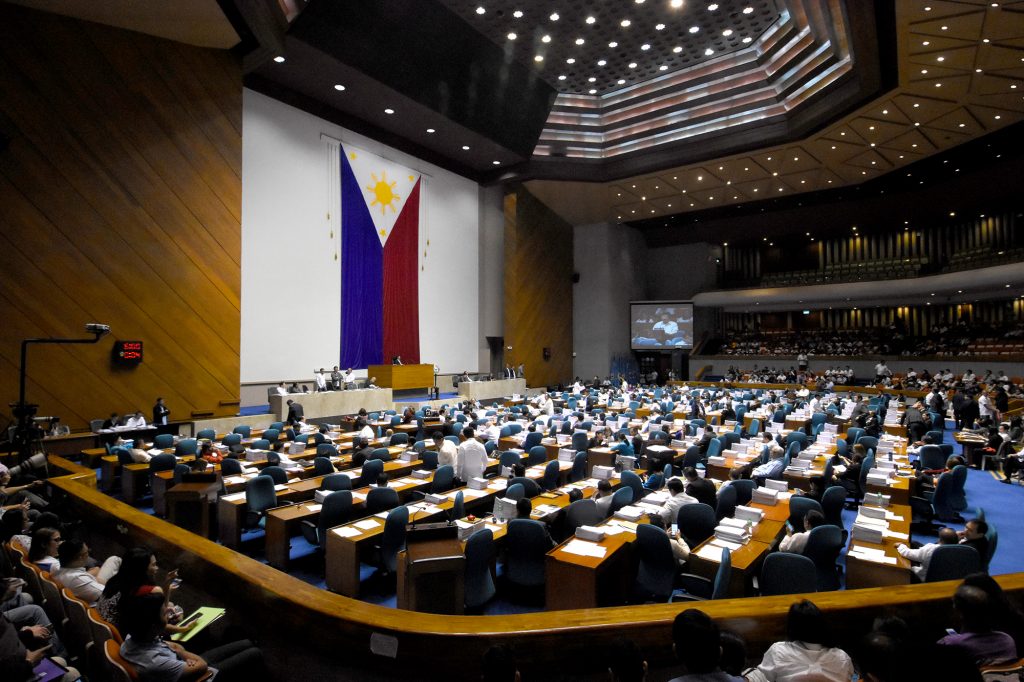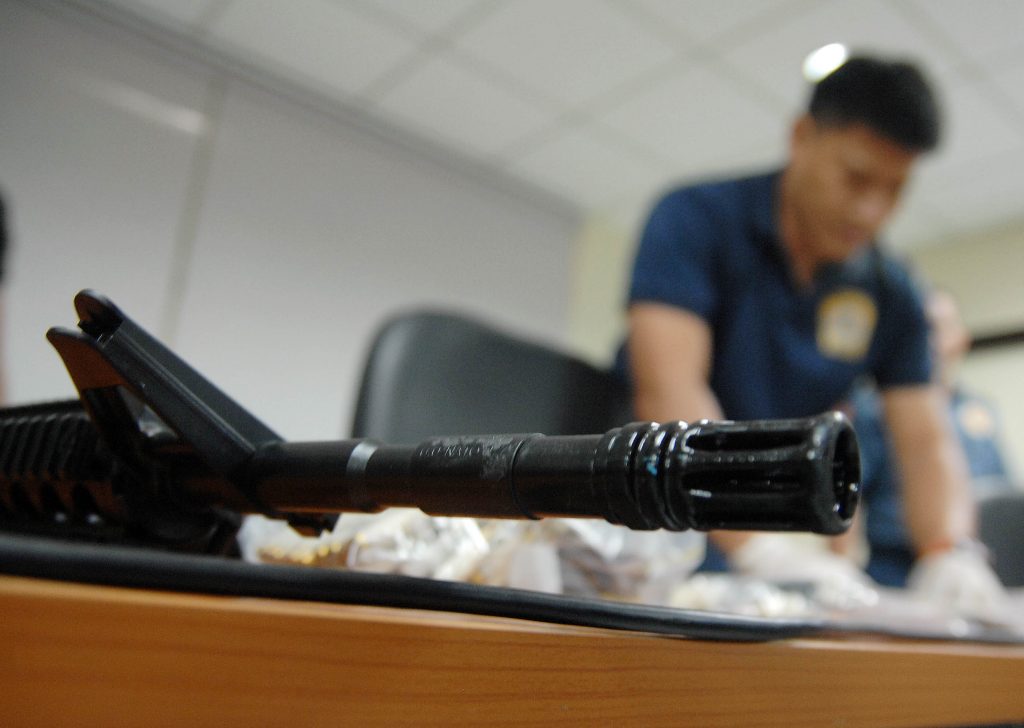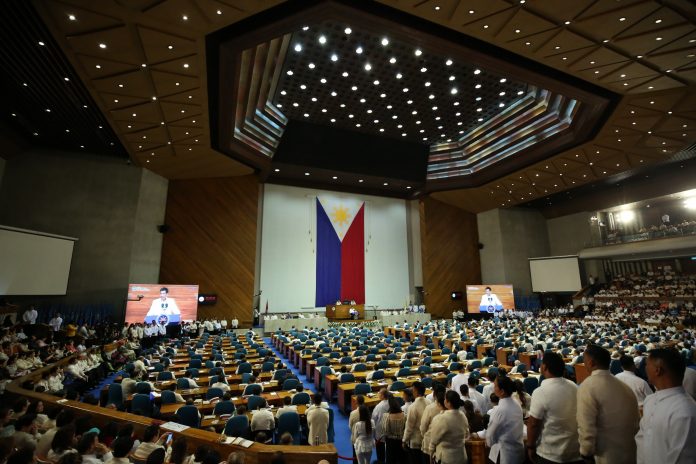The 1987 Constitution, considered the marrow of our laws, recently took one of several blows which, I believe, has left it severely traumatized—again.
About half-past one in the morning of March 3, as I was about to call it a day, I checked my Facebook account one last time only to find a news item with the heading: “Bill on presumption of guilt in drug-related crimes hurdles House.”
The headline hardly sunk in at first. I thought my mind had flown off to some remote parallel universe populated by beasts or some hideous excuse for humans. For who would tamper with a standing Constitution’s Bill of Rights by ripping the marrow out of its spine?
So, I checked other sources and, as I have suspected, yes, it was there. Called House Bill 7814, this piece of legislation seeks to amend the Comprehensive Dangerous Drugs Act of 2002 by overturning the democratic principle of presumption of innocence and replace it with presumption of guilt on the matter of drug-related offenses.
The Lower House voted 188-11 in favor of the bill. With only nine abstentions, the bill eventually hurdled its third and final reading on March 2.
Now, being melodramatic at this point only serves to muddle what is already a topsy-turvy world under Duterte. But I cannot, for the life of me, not feel violated by this vote. It is a blatant attempt by lawmakers largely loyal to President Rodrigo Duterte to mock the democratic ideal and the principle of due process.
Let me repeat that: This is a blatant attempt to mock the democratic ideal and the principle of due process.
This is a clear rape of the Constitution because at no time should our lawmakers craft laws in clear defiance of the same, more so its very soul: by replacing the principle of presumption of innocence with presumption of guilt.
To even think of legislating presumption of guilt is, by all intents and purposes, a perversion of all that we hold dear as a nation. At the very least, it imposes a legislative order which seeks to undercut and damage what this nation has fought for since the days of the Revolution.

I denounce this vote by Congress in the strongest possible terms as an act leading to the destabilization of the democratic process, and hence, the country at large. I am appalled at the audacity and insolence of those who agreed to pass this into law. They do not deserve their honorable titles and privileges.
Don’t get me wrong. I am just as outraged at the continuing proliferation of illegal drugs as I am horrorstruck at Duterte’s failed campaign promise to stop it in six months. How this particular bill even saw the light of day is a matter of grave concern.
And why is that? Because as it stands in agreement with the Anti-Terrorism Law, both could put all our attempts to protest, raise a grievance and enjoy our freedoms in serious jeopardy.
Article III, Section 14(1)-(2) of the Bill of Rights is clear: “No person shall be held to answer for a criminal offense without due process of law [emphasis, mine]. In all criminal prosecutions, the accused shall be presumed innocent until the contrary is proved, and shall enjoy the right to be heard by himself and counsel, to be informed of the nature and cause of the accusation against him, to have a speedy, impartial, and public trial, to meet the witnesses face to face, and to have compulsory process to secure the attendance of witnesses and the production of evidence in his behalf.”
The language used is easy enough to understand without the assistance of a dictionary or lexicon. The presumption of innocence is the very core and nucleus of due process, it is the nut and bolt that set our other freedoms in place.
Legislating presumption of guilt as a way to skirt due process is no different from vaccinating the whole body politic with a live, virulent virus. It renders the whole procession and progression of our laws, including the legal and judicial profession, largely incapacitated, hence disabled.
The dangers of legalizing presumption of guilt are not to be trifled with. First, it opens state forces as recipient of unrestrained power—to assume, guess, or presuppose—one’s guilt even without the essential investigations. This means police and state operatives can wield the authority to arrest anyone on mere presumption, but only now it’s legal.

I would suppose that the same is true with criminal conviction, which can be handed down regardless of whether guilt had been proven in a court of law, beyond reasonable doubt, or not.
Next is that it sets up our police forces and intelligence agents to the possibility of grave abuse of power. Given that our police officers are already in the dark about human rights and the legal limitations of their authority, such a law could only stoke the fires of atrocities, leaving citizens none the safer for it.
Think about it. This is very different from being arrested on mere suspicion. Suspicion, by definition, does not assure the arresting officer of anything other than what his doubt tells him. Without solid proof, should anything happen to you, he or she could land in the jaws of a legal suit.
Presumption of guilt, on the other hand, builds a case against you immediately out of thin air, with a charge of “guilty” to go with it. Unless you’ve proven yourself otherwise, which in this country takes a hell of a lot of time, that imputation of guilt prior to any investigations puts you now in a very precarious position.
In more extreme cases, this “guilt” could spark torture, mistreatment, and a level of brutalization you will have no way of dodging because, as the law says, you are guilty as presumed.
A law which presumes you are guilty makes for an easier leap from drug-related cases to charges of terrorism. Long has there been a correlation between drug money fueling terrorist activities. With presumption of guilt, a simple drug-related arrest could lead to one being tagged as a terrorist.
With the way the administration has been twisting and snaking its way into our laws, this doesn’t bode well for the political critic or dissenter who can now be arrested on mere presumption that he or she is a drug user, hence the possibility of being a terrorist.
Lest we forget, roughly a month after he took office as president in 2016, Duterte had admitted to the one contributing factor to his “success” in all of 10 years as mayor of Davao Citys: the planting of intrigues and evidence.
The last four years of Duterte’s crackdown on activists and critics have been one trumped-up charge after another. If they can plant firearms and explosives during raids, how hard is it do you think to plant several sachets or packets of shabu?
Here’s one for the book. The current mentality among police officers is reason enough to be wary. Former police chief and now Senator Ronald “Bato” dela Rosa once alluded to tattoos as insignias only criminals are wont to display. Going by his idea of what a tattoo is, are tattooed people now to be arrested on presumption of guilt?
What’s more, House Bill 7814 weighs down the legal profession as something totally unnecessary, superfluous and pointless, leaving state forces with the power to stand as judge, jury and executioner. If you think about it, it’s Duterte’s way of rubbing out the legal profession entirely. As a former prosecutor, Duterte’s betrayal of the profession is uncanny.
The Constitution is called such because it’s what constitutes a nation’s directive and ideal. The Bill of Rights stands as the soul of a democratic Constitution because it is the agency of upheaval and transformation, the greatest foe to tyranny. Its main objective is to establish the rights of the citizen over and above the responsibilities of State officials, not the other way around.
Above all, the Constitution sets the guidelines as to how we must venture out into the world and shape our relationship with the State and the public. If you want to know how bad presumption of guilt is, try living life presuming everyone as guilty of some crime. Let me know what you find out.
Joel Pablo Salud is an editor, journalist and the author of several books of fiction and political nonfiction. The views and opinions expressed in this article are those of the author and do not necessarily reflect the official editorial position of LiCAS.news.









